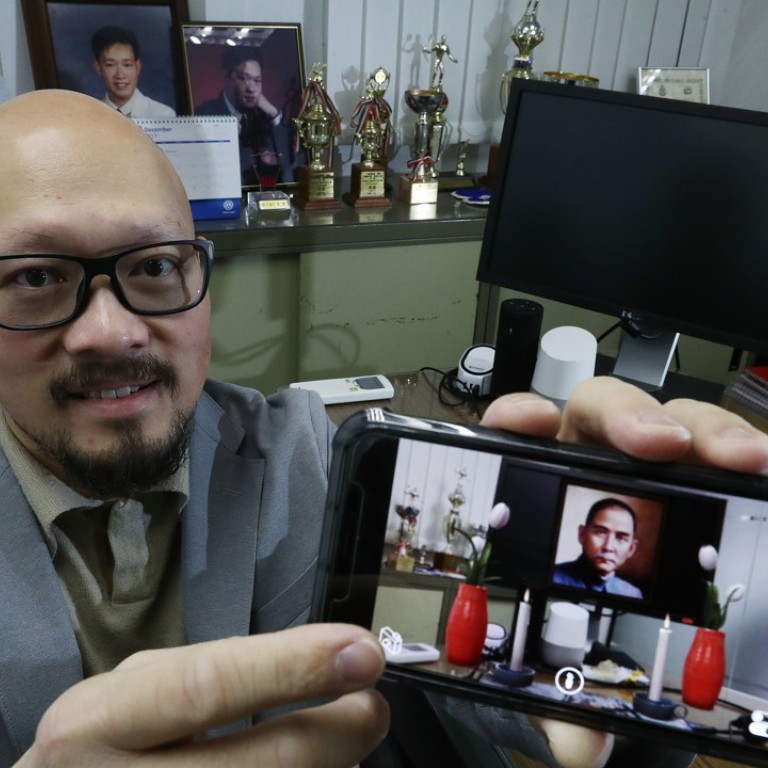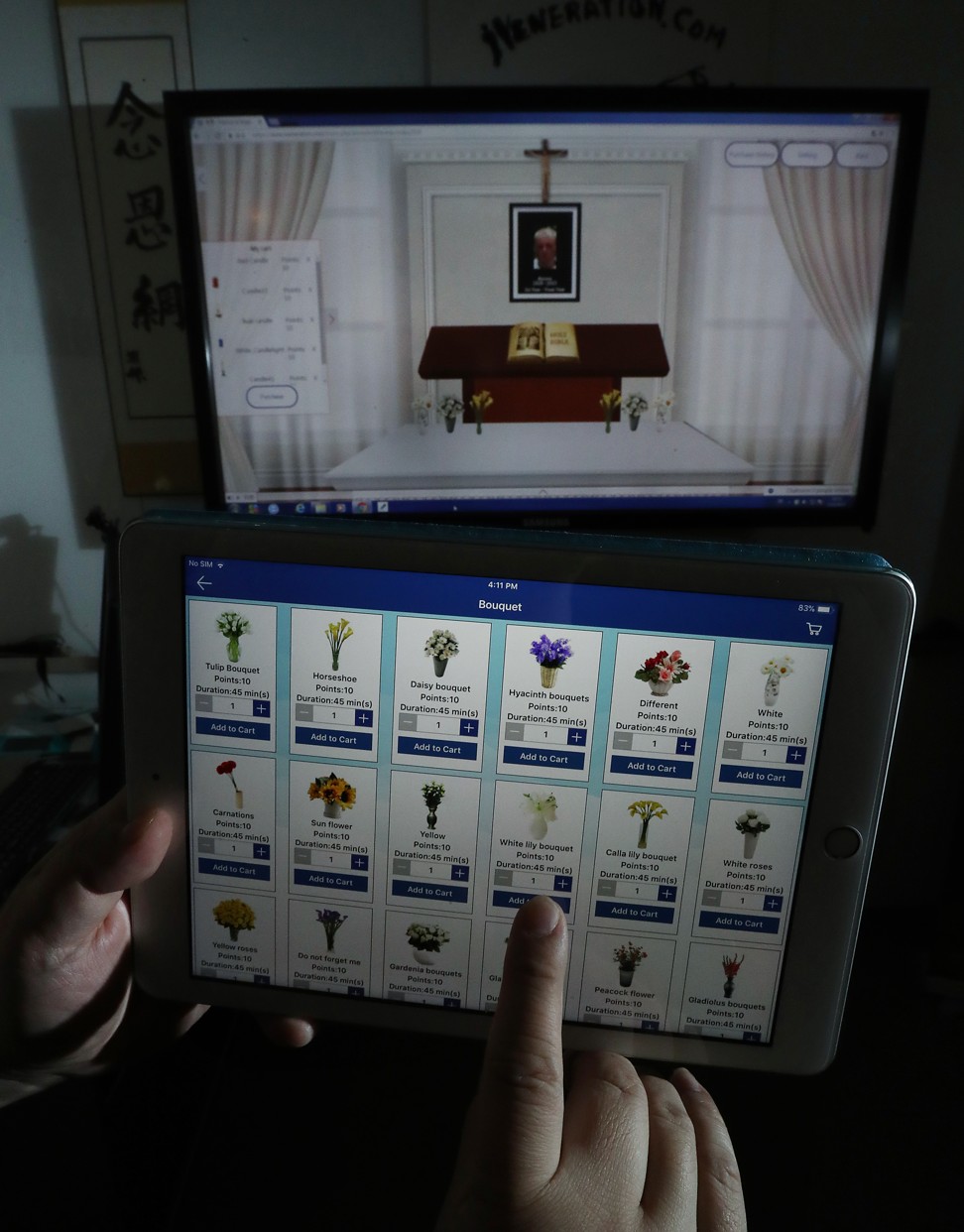
Why is this Hongkonger helping people mourn their dead relatives with virtual gravestones and shrines?
Digital start-up founder says what was once unthinkable is being embraced in a city facing exorbitant burial costs
Hongkongers may well be paying their respects to deceased relatives at a virtual gravestone in a few decades’ time, according to Anthony Yuen Sze-ming, who heads the digital memorial start-up iVeneration.
In a city rapidly running out of space for the living – let alone the dead – iVeneration promises to be a convenient, low-cost and eco-friendly alternative that can bring together relatives scattered across the world.
“It’s very hard to gather relatives together for venerations and ancestor worship,” says Yuen, referring to traditional Chinese memorial practices that are heavily associated with filial piety.
“We have Ching Ming and Chung Yeung [tomb-sweeping] festivals for this purpose, but not everybody can come back.”
Instead, families can build a virtual shrine to honour long-lost loved ones, complete with clickable graphics of flowers, candles and offerings common to various religious traditions. The service is free at the moment, with a “few hundred” families as customers since its launch last year.
Augmented reality and virtual reality functions are currently in development and slated to be rolled out later this year. These would enable someone to plant a virtual headstone anywhere in Hong Kong, using an augmented reality landscape.
Nearly 50,000 people died in the city in 2016, according to official census figures, and the government predicts the number will skyrocket to almost 100,000 by 2064. Faced with a rapidly ageing population and chronic shortage of burial land, local residents have largely turned to cremation. In 2016, 93 per cent of the city’s deceased were cremated.
People have said to us this cannot really replace traditions, but I think it just takes time
But affordable public columbarium niches are in shorter supply, with an average wait time of four years. Spaces in private columbariums can fetch HK$1 million (US$128,000) or more. Unwilling to spend on that scale, some desperate Hongkongers have taken to simply storing urns at home.
In recent years the government has promoted alternative means of memorialising the dead, such as scattering ashes at sea and in specially designated remembrance gardens.
However, these newer methods only account for a fraction of the total deaths in Hong Kong during 2016.
Yuen sees his virtual service as aligning with the government’s aims. Yet he is aware of people’s doubts over the combination of modern technology and centuries-old tradition.
Chinese funeral customs usually follow elaborate Buddhist or Daoist rituals. These involve offering food items to the deceased at a shrine, and burning incense and joss paper (often in the form of “ghost money”) to ensure they have a comfortable existence in the afterlife.
According to Yuen, devout Buddhists and Daoists might regard his service as disrespectful or less real because it does not entail physical burning.
How AI will change your life this year
“People have said to us this cannot really replace traditions, but I think it just takes time,” he says.
“For example, even a long time ago, most people in Hong Kong did not accept cremation. It took 20, 30 years for people to get used to it. Now, cremation is as natural as burial.”
Indeed, virtual memorial services have been available in mainland China since 2006, allowing migrant workers to pay their respects without needing to travel.
Will funerals of the future have ceremonies led by robot priests?
Yuen believes that differences in Chinese and Western attitudes towards death depend more on a person’s religion. At the moment, iVeneration can be customised for Buddhists, Daoists, Catholics and Protestants, but Yuen plans to expand the range of religions in future.
“Using these modern technologies, we’re making [paying respects] more realistic and believable so people can slowly adapt to this way of practice,” he adds.
“It’s all about the heart, not just doing it virtually or physically.”


